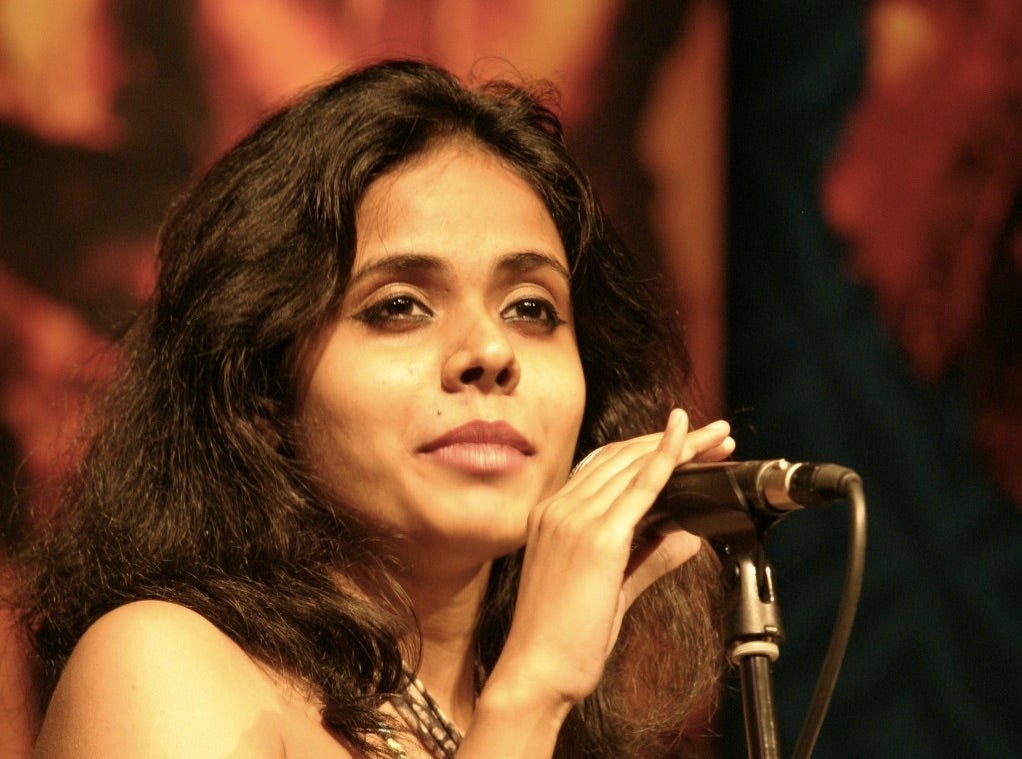Meena Kandasamy: Wielding her pen to calm centuries-old chaos of the country
Meena Kandasamy: Wielding her pen to calm centuries-old chaos of the countryon Oct 23, 2019

Prolific writer and activist Meena Kandasamy plays with words to reign in action, through her novels, poetry, and translation. In tackling social justice, her body of work has been a power to be reckoned with.
“Dissent. Protest. Rebellion. The need to speak out. The need to show support,” Meena says of the things that inspire her work.
She turned to writing at the age of 17 starting with poems and translating books by Dalit writers. The hatred and violence hurled at the Dalit community bothered her, and her debut collection of poems titled Touch (2006) captures the struggle of being an ‘untouchable’ in India.
Her first novel The Gypsy Goddess (2014) was based on the Kilvenmani massacre that took place in 1968 in her home state, Tamil Nadu. It tells the plight of Dalit people toiling hard under the oppressive landlords against the backdrop of deep class-based divisions in the country.
As a human-rights activist, this 35-year-old has set clear that her fight is about women and those belonging to the lower caste in India. “Feminism is neither a corporate nor an imperialist project. Feminism is a grassroots project; it is a project of the people,” she says.
However, looking out for the underserved people in the caste system meant challenging an oppressive, powerful system. When their rules dictated that Dalits and women live a subjugated life, it meant fighting the very religious notions of Hindutva. Kandasamy’s vociferous participation in social protests and her social media posts which were often viewed as outspoken and outrageous, had evoked wrath and criticism from many.
Infusing her own voice with the world
Meena Kandasamy’s writings, produced with the motive of bringing change, have high resonance among the readers. This is especially true in case of her novel When I Hit You: Or, A Portrait of the Writer as a Young Wife (2017).
Strikingly, there is little about the woman protagonist except for falling in love with a professor and walking with him into marriage. She is unnamed and undescribed which, Meena says, is intentional. And in doing so, the story draws attention to the collective, universal experience of humiliation, pain and of being downgraded every day.
The book was drafted little by little in her mind while going through an abusive marriage herself. She writes, “I am not listening to him. I have no intention of responding. I am thinking of being at a point in the future when I would be writing about this moment, about this fight, about the stinging slaps that mark my cheeks”.
Still, acknowledging that it happened remained the hardest part because it shattered the illusion that it could not happen to strong people, like her. And initially while drafting the book, she had employed a third-person voice to make her own connections distant.
When I Hit You was nominated Women's Prize for Fiction 2018 and named as book of the year by The Guardian, The Observer, Daily Telegraph and Financial Times, among others. Her second collection of poetry Ms Militancy (2010) was also critically acclaimed.



.jpg)






.jpg)

.jpg)
.jpg)
.jpg)
.jpg)

.jpg)

.jpg)









Sorry! No comment found for this post.